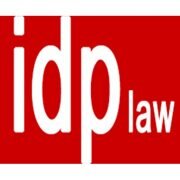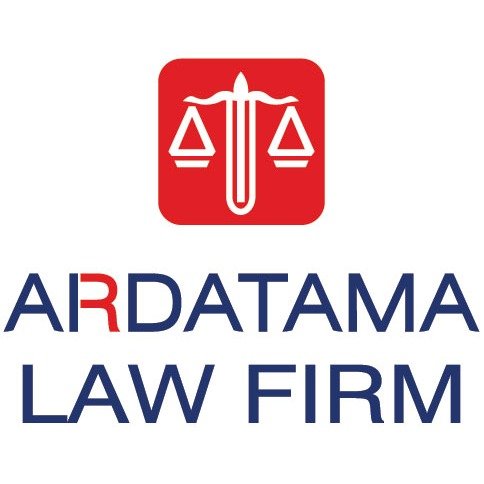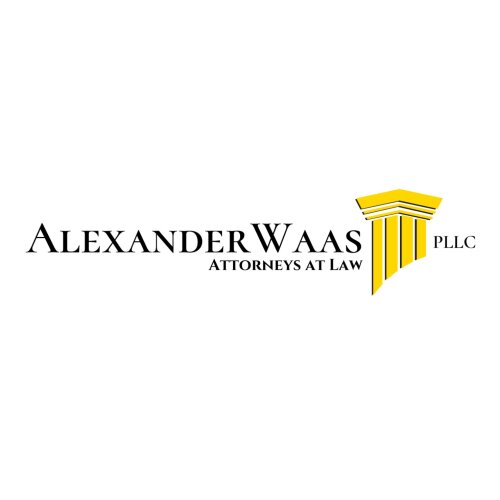Best Structured Finance Lawyers in Indonesia
Share your needs with us, get contacted by law firms.
Free. Takes 2 min.
Or refine your search by selecting a city:
List of the best lawyers in Indonesia
About Structured Finance Law in Indonesia
Structured finance in Indonesia refers to a set of sophisticated financial transactions that go beyond traditional lending and borrowing. These transactions are typically used by corporations, financial institutions, and government entities to manage risk, raise capital, and improve liquidity. Examples of structured finance products include securitization, asset-backed securities (ABS), collateralized loan obligations (CLOs), and project finance. Indonesia's financial market is rapidly developing, and the regulatory landscape for structured finance is evolving to keep pace with global best practices while reflecting local considerations.
Why You May Need a Lawyer
Structured finance transactions can be highly complex, involving multiple parties, detailed contracts, compliance obligations, and significant sums of money. Legal-soundness and regulatory compliance are essential to protect your interests and ensure enforceability. You might need a lawyer if you are:
- Entering into or structuring a securitization or asset-backed securities transaction
- Negotiating terms of project finance or public-private partnership (PPP) arrangements
- Complying with Bank Indonesia, Financial Services Authority (OJK), or other local regulations
- Managing risks associated with cross-border structured finance deals
- Drafting or reviewing complex finance agreements
- Dealing with disputes, defaults, or restructurings related to structured finance mechanisms
- Seeking advice on tax implications relating to structured finance products
Local Laws Overview
Indonesian structured finance transactions are regulated under various laws, including financial services, banking, and capital market regulations. Key considerations include:
- The Financial Services Authority (OJK) plays a central role in regulating and supervising financial services, including structured finance products
- Securitization is governed primarily by OJK regulations, specifically those that establish requirements for Asset-Backed Securities (EBA) and Collective Investment Contracts (KIK-EBA)
- Bank Indonesia regulates aspects of risk management, capital adequacy, and reporting for financial institutions engaging in structured finance
- Taxation rules, especially concerning VAT, income tax, and withholding tax, significantly impact transaction structuring
- Foreign exchange regulations must be considered for cross-border deals, as controlled by Bank Indonesia
- There are legal requirements related to disclosure, investor protection, and public offering procedures for securities issued in Indonesia
- Contract enforceability and dispute resolution often reference both domestic laws and international standards
Frequently Asked Questions
What is the most common type of structured finance in Indonesia?
The most prevalent structured finance product in Indonesia is asset-backed securities, particularly mortgage-backed securities and receivables-backed securities issued through collective investment contracts.
Who regulates structured finance activities in Indonesia?
The main regulator is the Financial Services Authority (OJK), with certain activities also subject to Bank Indonesia rules and, occasionally, the Ministry of Finance.
Do structured finance transactions require OJK approval?
Yes, most structured finance products, especially those involving public offerings or investment by the general public, require registration or approval from OJK.
Are there restrictions for foreign investors in Indonesian structured finance?
Foreign investors must adhere to prevailing foreign investment regulations, including limitations on ownership and strict compliance with currency and tax rules.
What are the key risks in Indonesian structured finance?
Risks include regulatory changes, credit risk, market risk, legal enforceability, taxation, and challenges associated with cross-border transactions.
How is securitization structured in Indonesia?
Securitization in Indonesia is typically performed through the issuance of collective investment contracts known as KIK-EBA, where assets are pooled and sold as securities to investors.
Can structured finance products be offered to the public?
Yes, structured finance products such as asset-backed securities can be offered to the public but must comply with stringent registration, disclosure, and reporting requirements set by OJK.
What legal documentation is required for structured finance?
Typical documentation includes offering circulars, trust agreements, servicing agreements, purchase and sale agreements, and legal opinions.
How are disputes in structured finance transactions resolved?
Disputes may be resolved through Indonesian courts or, if agreed by contract, via arbitration. Many agreements reference both domestic and international dispute mechanisms.
Are there special tax considerations for structured finance?
Yes, transaction structuring must account for income tax, VAT, and withholding obligations. Professional legal advice is crucial to ensure compliance and tax efficiency.
Additional Resources
If you are seeking further information or assistance regarding structured finance law in Indonesia, the following organizations can be helpful:
- Financial Services Authority (OJK) - for regulations, licensing, and guidance
- Bank Indonesia - for matters on currency control and central bank rules
- Indonesia Investment Coordinating Board (BKPM) - for foreign investment regulations
- Indonesian Capital Market Legal Consultants Association (HKHPM) - for legal professionals specializing in capital markets and finance
- Ministry of Finance - for taxes related to financial transactions
- Indonesian Advocates Association (PERADI) - for finding registered legal practitioners
Next Steps
If you need legal assistance with structured finance in Indonesia, consider the following actions:
- Identify your specific needs, such as transaction structuring, regulatory compliance, or dispute resolution
- Gather all relevant documents and details about your planned transaction or issue
- Consult with a legal professional experienced in structured finance in Indonesia
- Check credentials and experience of your chosen lawyer or legal advisor
- Work closely with your legal advisor to ensure full compliance with Indonesian laws and regulations
- Keep updated with changes in local laws that may impact your structured finance activities
Timely and professional legal advice can help you manage risks, ensure compliance, and achieve your financial objectives in structured finance transactions in Indonesia.
Lawzana helps you find the best lawyers and law firms in Indonesia through a curated and pre-screened list of qualified legal professionals. Our platform offers rankings and detailed profiles of attorneys and law firms, allowing you to compare based on practice areas, including Structured Finance, experience, and client feedback.
Each profile includes a description of the firm's areas of practice, client reviews, team members and partners, year of establishment, spoken languages, office locations, contact information, social media presence, and any published articles or resources. Most firms on our platform speak English and are experienced in both local and international legal matters.
Get a quote from top-rated law firms in Indonesia — quickly, securely, and without unnecessary hassle.
Disclaimer:
The information provided on this page is for general informational purposes only and does not constitute legal advice. While we strive to ensure the accuracy and relevance of the content, legal information may change over time, and interpretations of the law can vary. You should always consult with a qualified legal professional for advice specific to your situation.
We disclaim all liability for actions taken or not taken based on the content of this page. If you believe any information is incorrect or outdated, please contact us, and we will review and update it where appropriate.
Browse structured finance law firms by city in Indonesia
Refine your search by selecting a city.

















